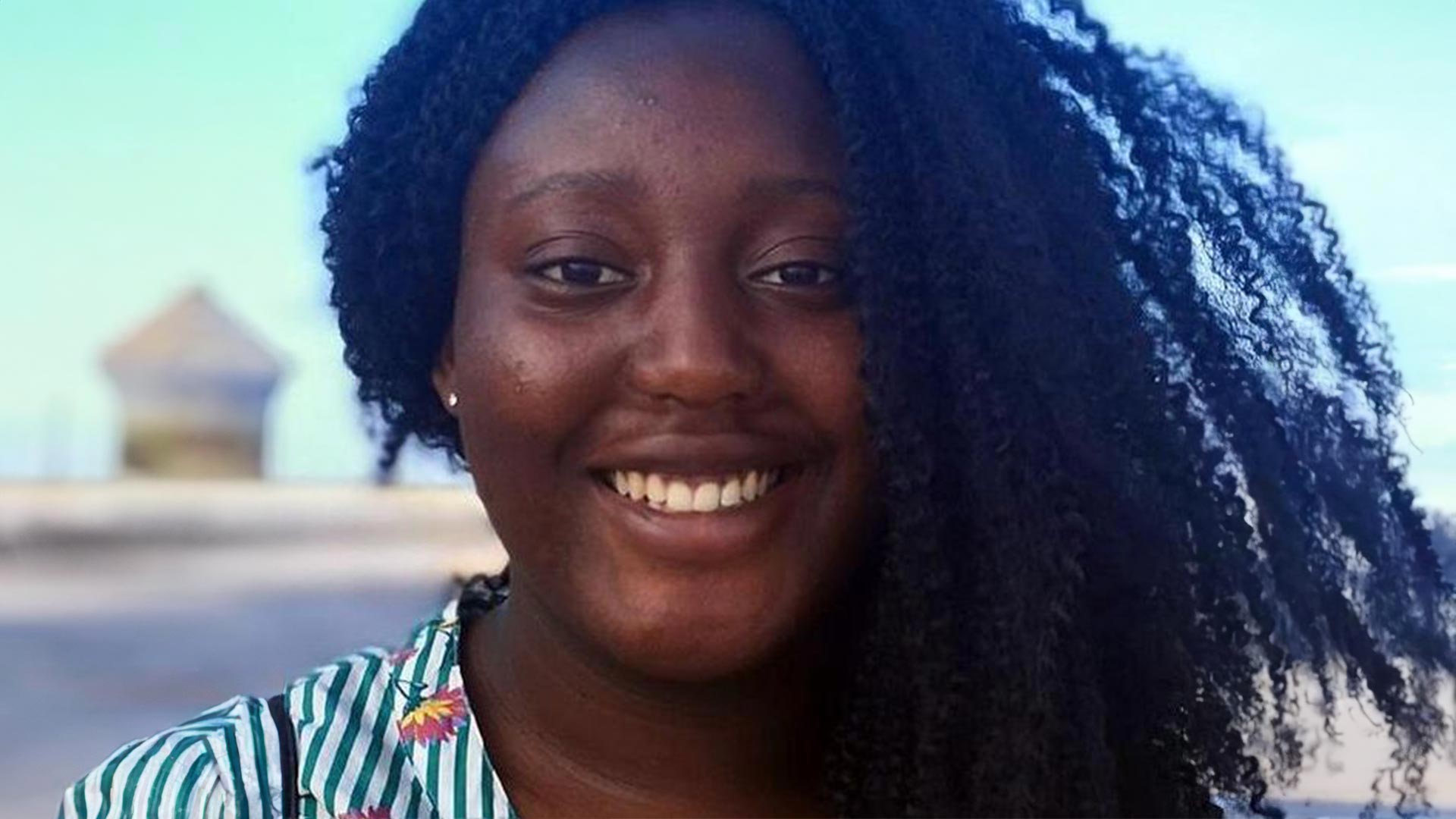Tolúlọpẹ́ Ògúnrẹ̀mí’s involvement with WiDS began as a WiDS London ambassador, working with Stanford prior to getting accepted to the Stanford Computer Science (CS) PhD program. She has been able to combine a love of languages with her ability in mathematics and computer science and is now focused on Natural Language Processing (NLP) for low-resource languages, particularly in sub-Saharan African languages. Tolúlọpẹ́ came full circle with WiDS, attending and volunteering for the WiDS Worldwide event in 2022.
Tell us about your background.
I spent the first part of my childhood in London, then moved to Kent for the latter half, and I attended primary and secondary school in London. My parents are Nigerian, Yorùbá to be precise, so I grew up in a Nigerian household. I have a BSc in Mathematics and Computer Science and an MSc in Speech and Language Processing from the University of Edinburgh. I am currently in the first year of a Computer Science PhD at Stanford.
I enjoy traveling, coding, learning new languages and immersing myself in different cultures.
How did you get interested in data science?
I think there was always an interest there, due to the attention being given to data science in the media. I was told that my undergraduate major was a ‘data science’ degree, as that degree was not explicitly offered at the time. I knew I had the ability to do data science for a while but was not interested in it until I found out about Natural Language Processing (NLP). While attending an AI conference, I spoke to an NLP engineer, mentioning my love for spoken languages. I was told that with my ability in Maths and CS, I would be able to transition to the field quite easily. During my Erasmus semester at Paris Diderot, I had the opportunity to take the “Linguistique-Informatique” class, and the rest is history. I taught myself NLP for a year, did a research internship, and started my master’s degree the following year.
What are you currently working on?
I am currently working on Natural Language Processing for low-resource languages with a focus on sub-Saharan African languages, such as my mother-tongue Yorùbá. I have built speech-recognition and dialogue systems for the Yorùbá, and I’ve also worked on projects using Igbo, Nigerian Pidgin, and Nigerian accented English data.
How did you first discover WiDS?
I discovered WiDS via a friend on the WiDS London organising team. It was right at the start of the pandemic, and the WiDS London team wanted to connect with me given my work as founder of Coders of Colour. At such a dark time, whilst I was self-learning, it was great to meet and be supported by lovely women in data science. I learnt so many things from trying to organise such an event at such a peculiar time: patience, persistence, project management, people management and so much more.
How have you been involved with WiDS since that first experience?
I became a WiDS London ambassador in late 2020 and helped organise the WiDS London Conference in 2021. Interestingly, I have never simply attended a WiDS event strictly for educational or networking purposes. Instead, I have always been attached to the organisation of the event as an ambassador or volunteer.
How has WiDS made an impact on your life and/or work?
The serendipity of me becoming a WiDS regional ambassador, collaborating with Stanford University, and then getting into the CS PhD at Stanford is wild. Being able to meet the WiDS Worldwide team in person has been so lovely and beneficial to hear from women further in their careers with such sage advice. Being able to volunteer at the WiDS Worldwide conference at Stanford in 2022 was an extremely enriching experience.
What comes next for you? And what are your hopes for women in data science in the future?
I am currently focused on getting my PhD! In the future, I hope to develop language technologies for those whose languages have been forgotten by modern technology and rethink the current machine learning architectures that are used for language to enable a larger proportion of the world’s languages to have natural language processing tools.


